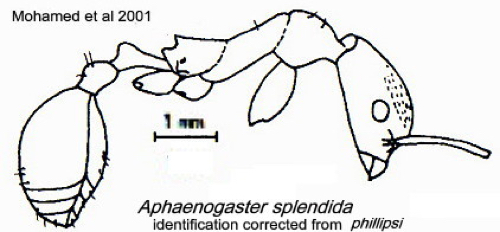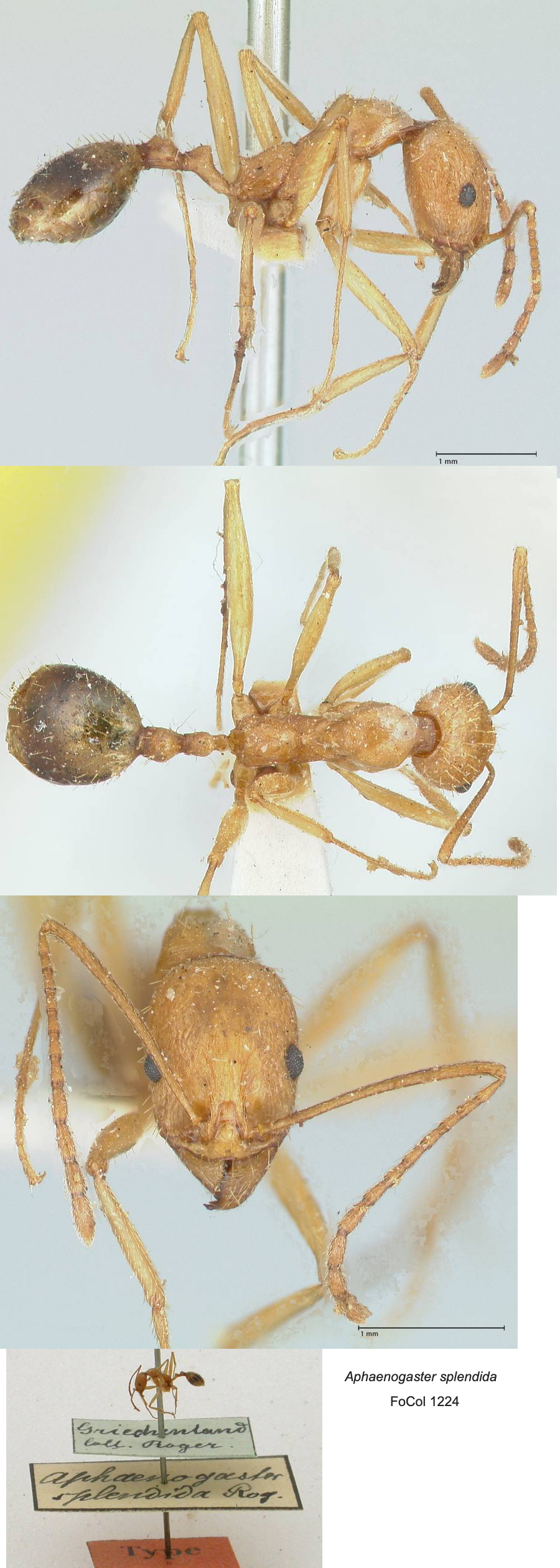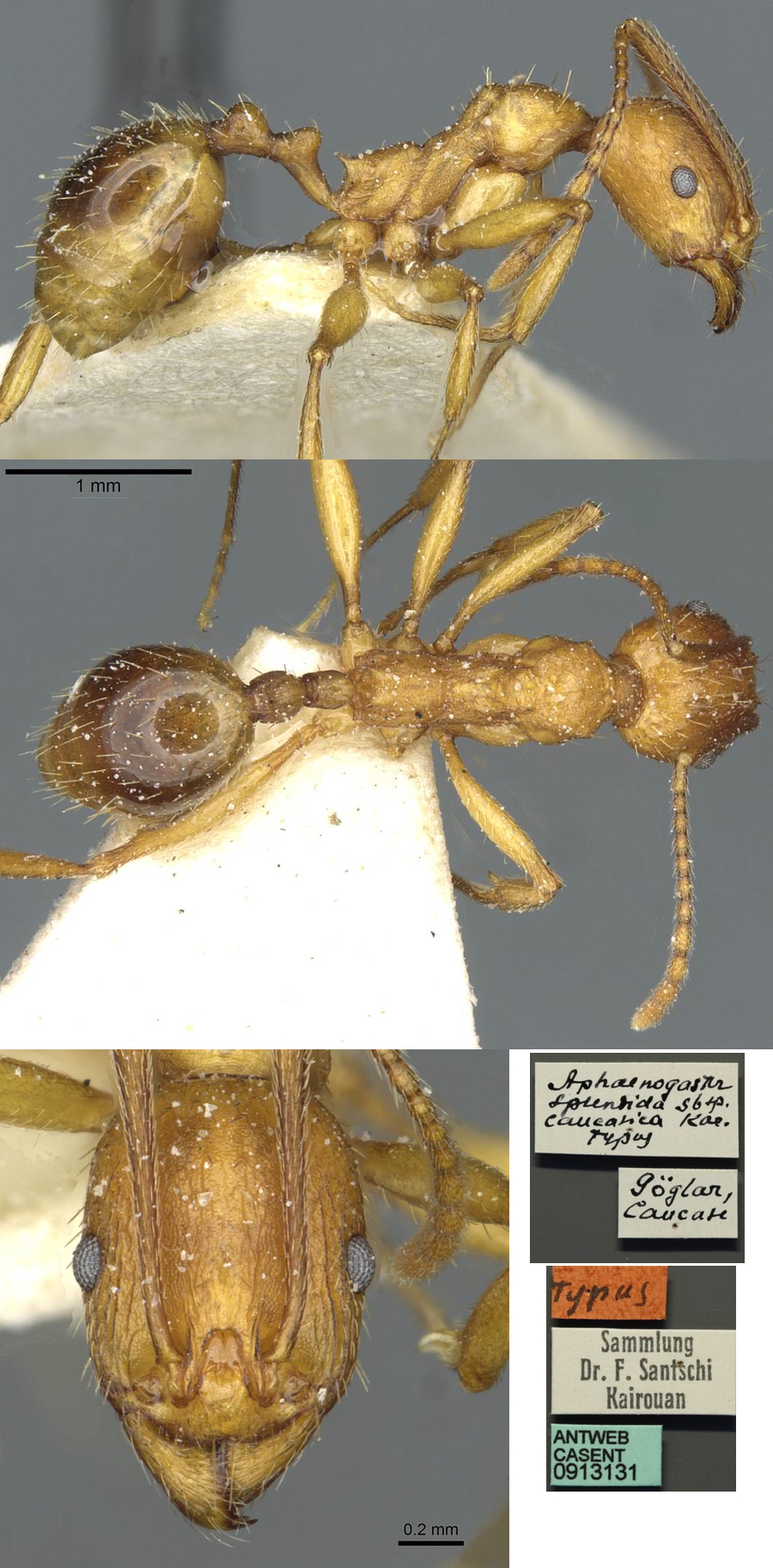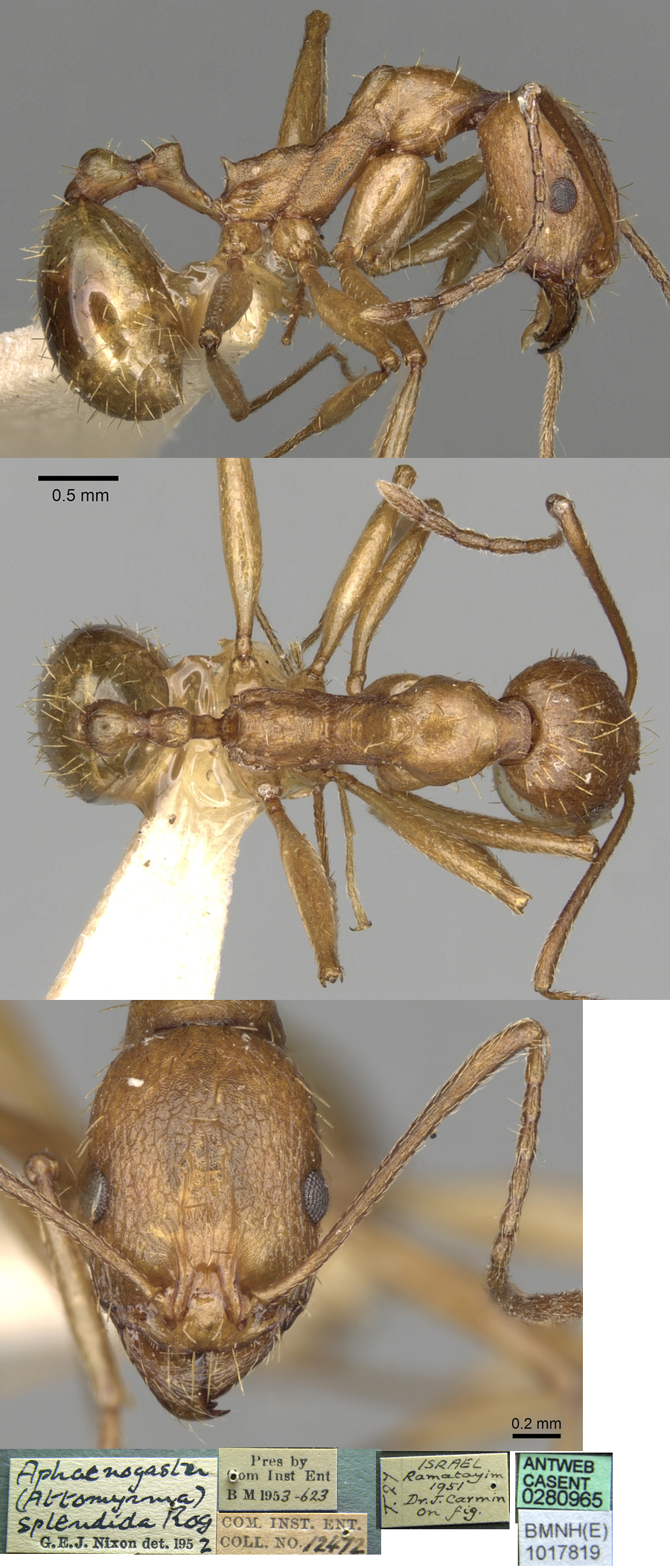Aphaenogaster (Attomyrma) splendida (Roger)
 Type location Greece
(Atta splendida, Roger, 1859: 257, worker; Emery, 1869b: 17,
queen; Emery, 1908c: 325, illustrated, male) no location, collector
Krüper -
see below Type location Greece
(Atta splendida, Roger, 1859: 257, worker; Emery, 1869b: 17,
queen; Emery, 1908c: 325, illustrated, male) no location, collector
Krüper -
see below
subspecies transcaucasica (Karavaiev, 1926b:
97, worker & queen; ssp Arnold'i, 1948: 211) from Transcaucasia
- see below.
rugosoferruginea (Aphaenogaster
splendida Roger race A.
rugoso-ferruginea n. stirps, Forel, 1889: 260, worker), type
location Greece, Crete, Lasithi-Gebirge - raised to species
Borowiec & Salata, 2013 PDF: 338 (q.) (Antweb link) includes
illustration of splendida. A
Borowiec identified worker can be seen at - https://www.antweb.org/specimenImages.do?code=casent0281537
|
 Roger's
(1859) description is at Roger's
(1859) description is at  . Forel's
(1889) description of rugosoferruginea,
is at . Forel's
(1889) description of rugosoferruginea,
is at  . Emery's
(1908c) description, with rugosoferruginea,
is at . Emery's
(1908c) description, with rugosoferruginea,
is at  . Karavaiev's
(1926b) description of trancaucasica,
is at . Karavaiev's
(1926b) description of trancaucasica,
is at  . .
Egypt records - Santschi (1938a: 37), worker from
Cairo, 12.vii.1916, collector Alfieri (listing only).
Sharaf list - Material examined: Cairo, 9.x.1953 (2); Cairo, 8.xi.1953
(1); Cairo, 2.i.1953 (1); Burg-El-Arab (Alexandria), 18.iv.1953 (1);
Wadi El-Talaa, St.Catherine (South Sinai), 19.ii.1999 (1),
Leg.M.R.Sharaf; Wadi El-Arbaein, St. Catherine (South Sinai),
11.viii.1998 (1), Leg. M.R.Sharaf [this specimen, shown in the drawing
was originally thought to be A. philippsi]; (ASUC). Cairo,
12.vii.1916, Storey (2 workers); Zamalek, xii.1951, Prisner (2 workers)
(CUC).
|
 http://www.antweb.org/specimenImages.do?code=focol12241. http://www.antweb.org/specimenImages.do?code=focol12241.
|
 >The photomontage of a
type worker of "causica" is
collated from http://www.antweb.org/specimenImages.do?code=casent0913131.
This is among the transcaucasica listed
by Karavaiev (1926b); who gave the occurrence of the type form as
Southern Europe, Syria, Tunisia and Algeria . >The photomontage of a
type worker of "causica" is
collated from http://www.antweb.org/specimenImages.do?code=casent0913131.
This is among the transcaucasica listed
by Karavaiev (1926b); who gave the occurrence of the type form as
Southern Europe, Syria, Tunisia and Algeria .
|
 The
photomontage of a worker from the BMNH collection is collated from http://www.antweb.org/specimen.do?name=casent0280965. The
photomontage of a worker from the BMNH collection is collated from http://www.antweb.org/specimen.do?name=casent0280965.
|
Borowiec & Salata (2013) gave illustrations that
show a
quite different species. In their notes they state they had not seen
the types of either A. splendida
or rugosoferruginea. See pdf
|
|